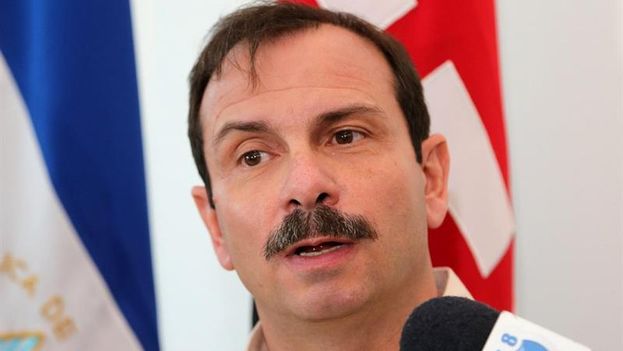
![]() 14ymedio, Marcelo Hernandez, Havana, 29 March 2017 — It was only a matter of time before the spy Fernando González Llort took over the presidency of the Cuban Institute of Friendship with the Peoples (ICAP). Since his return to Cuba after serving a 15-year prison sentence in the United States, many predicted his rise to that position.
14ymedio, Marcelo Hernandez, Havana, 29 March 2017 — It was only a matter of time before the spy Fernando González Llort took over the presidency of the Cuban Institute of Friendship with the Peoples (ICAP). Since his return to Cuba after serving a 15-year prison sentence in the United States, many predicted his rise to that position.
In June 2014, González was appointed vice president of ICAP and on Tuesday it was announced that he was replacing Kenia Serrano Puig, who had served in the presidency of the institution for eight years.
The official note on the replacement was sparse in its goodbye to Serrano and did not include the usual formula of “she will take on other responsibilities”
The official note on the replacement was sparse in its goodbye to Serrano and did not include the usual formula of “she will take on other responsibilities.” The text didn’t even describe her “excellent performance at the head” of the institution. In the grammar of power, this reservation does not bode well for the woman.
Since their return to the island, all the members of the so-called Wasp Network have held positions in official bodies, mostly as vice-presidents. González Llort is the first to manage an organization.
In 1987, shortly after graduating with a Gold Diploma in International Political Relations, González Llort was part of a tank brigade in Angola. In the rest of his biography, he emphasizes his participation in the Wasp Network that concluded with his arrest and imprisonment in the United States.
For decades the Cuban Institute of Friendship with the Peoples (ICAP) has been a front for Cuban Intelligence
For decades, ICAP has been a front for Cuban Intelligence. Since their founding, institutions of this type have existed in the rest of the socialist countries. Instead of presenting themselves with the ideological tint of the Marxist court, they wrap themselves in the clothing of friendship between peoples.
The position of ICAP president can lead its occupant to higher spheres, as was the case of Sergio Corrieri, who was part of the Central Committee of the Party and was a member of the State Council. On the other hand, Kenia Serrano, who had previously been a member of the National Bureau of the Young Communists Union (UJC), was only able to ascend to a seat in Parliament.
